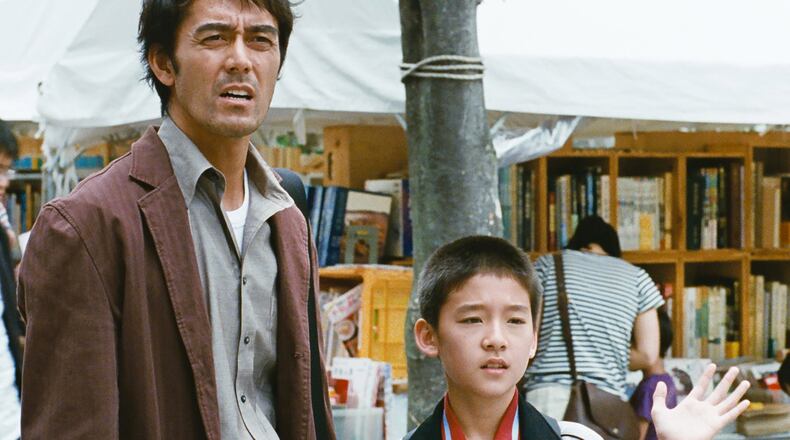Toward the end of Hirokazu Kore-eda’s latest complex family drama, “After the Storm,” an aging matriarch muses, “I wonder why it is that men can’t love the present. Either they just keep chasing whatever it is they’ve lost, or they keep dreaming beyond their reach.
”How can you enjoy life if you keep doing that?“
She is speaking not only of her husband, who has recently died, the wreckage of his life still affecting those he left behind; and her son, who once was a novelist with a wife and son but has lost it all to apparently a mid-life crisis that even he can’t identify.
Unlike the completely winning ”Our Little Sister“ from last year, Kore-eda’s latest effort is decidedly more downbeat, his characters more inscrutable and his pacing more languid, even by Kore-eda’s usual standards. It’s an interesting, at times absorbing, and quietly unsettling film.
Ryoto (Hiroshi Abe) has lost his mojo. Fifteen years earlier, his novel won a prestigious award, but he has yet to follow up on that success. He is divorced from Kyoko (Yoko Maki), and is behind on his child support — he is limited by the divorce settlement to visiting his son Shingo (Taiyo Yoshizawa) once a month.
He is also broke — probably because of the cost of the divorce and his gambling habit. With no follow-up novel in the works, he has taken a job with a private detective agency. As he gets the goods on his clients’ cheating significant others, he also examines his only life, which he is gradually realizing is a failure.
“I’m the ‘great talents bloom late’ kind,” Ryoto tells his mother, Yashiko (Kirin Kiki, who is excellent).
Not buying it for a second, mom responds, “You’re taking too long to bloom.”
Unable to move on, Ryoto utilizes his private eye skills to spy on his ex-wife and her new boyfriend, who seems to be everything he is not — and a nice guy to boot. What could be a creepy sort of plot twist is, in Kore-eda’s hands, more of a sad desperation.
As with many of Kore-eda’s best films — “Maborosi,” “Still Walking” among others — “After the Storm” has what the Japanese call mono no aware, which translates as “the pathos of things.” It is a film that is aware of the of the transient, impermanent nature of life.
“How did life turn out this way?” is a line spoken by several of the characters in the film.
Kore-eda’s advice? Time to turn the page and move on.
MOVIE REVIEW
“After the Storm”
Grade: B
Starring Abe Hiroshi and Yoko Maki. Directed by Hirokazu Kore-Eda. In Japanese with subtitles.
Not rated. Check listings for theaters. 1 hour, 57 minutes.
Bottom line: A complex drama that is aware of the impermanent nature of life
About the Author





